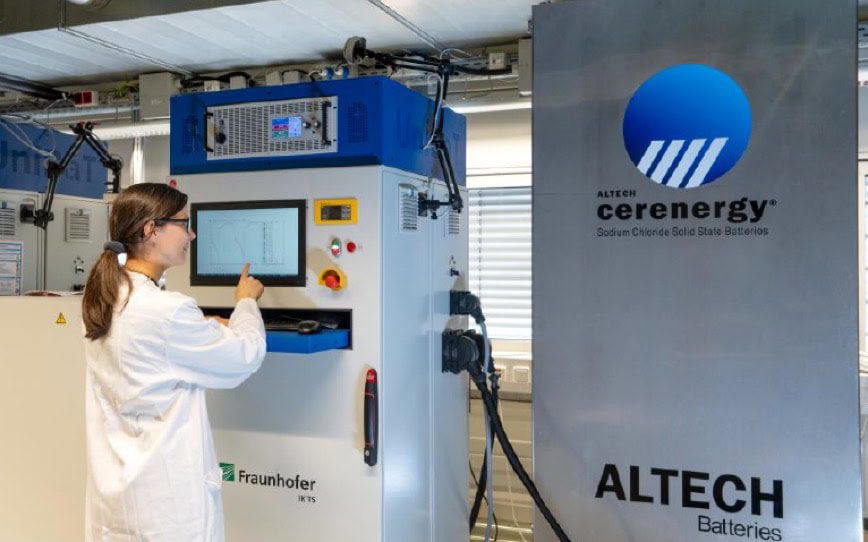A Perth company is planning its next steps after successfully switching on a 60 kilowatt (kW) sodium-chloride solid-state battery prototype in a trial in Germany.
Perth-based Altech Batteries installed the battery at its joint venture partner Fraunhofer IKTS’ test laboratory in Dresden. The battery, named the Cerenergy ABS60, is being monitored to see how it runs under real world conditions.
“Using common table salt technology and without the requirement for lithium, copper, cobalt, graphite and manganese, the Cerenergy battery can operate in a wide range of temperatures and has a life of 15 years, around double that of lithium-ion batteries,” says Altech CEO Iggy Tan.
“The prototype can now be demonstrated under real-world conditions, providing critical data for off-take parties. This will be invaluable as Altech pushes forward with sales and finance to construct the first 120MWh plant.”
Tan says Altech has a Letter of Intent for 30MWh of offtake with Schwarze Pumpe Industrial Park.
The test program in Dresden tested 497 individual battery cells at an operational temperature of 300°C.
After 500 cycles, the cells demonstrated a consistent discharge capacity of 80 Ah and an efficiency of up to 91 per cent, Altech said. The discharge energy and capacity remained stable without any indication of degradation occurring across the 500 cycles, and the average discharge voltage held steady throughout the tests.
Discharge and overcharge stress and abuse tests were conducted without any cell failures, confirming the cells’ durability.
The ABS60 battery packs use 250 ceramic Cerenergy cells of 2.58 volts each. These are packed into modules of 12 cells each which are then stacked five high.
Sodium-ion batteries are one credible alternative to lithium. The advantage of sodium is that the mineral is cheaper and easier to source; and sodium batteries hold their charge for much longer than lithium-ion.
But like all emerging technologies they also have their problems.
The batteries are less energy dense than lithium-ion and require more space and material to store the same amount of charge.
And solid state batteries promise a lighter, faster to recharge and safer alternative to liquid electrolytes – but as yet no one has managed to deliver them on a commercial basis. Last year US researcher set boffins’ hearts aflutter by announcing a solid-state, anode-free sodium battery, one that promised to be safer and cheaper again.






